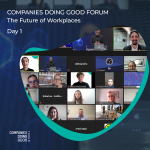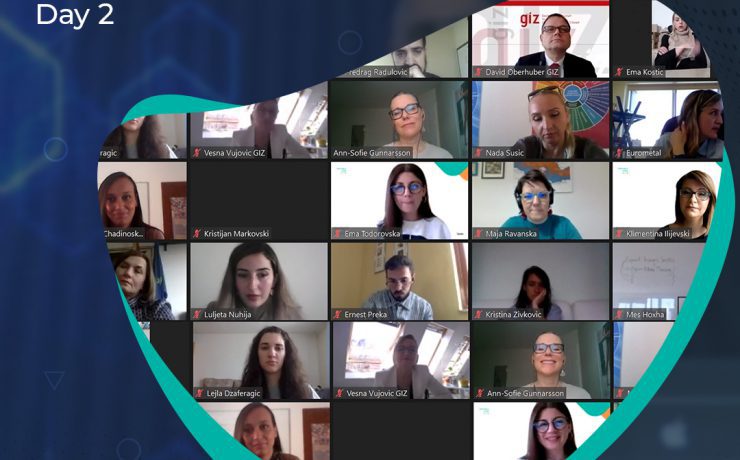Companies Doing Good Forum 2021 – The Future of Workplaces
This edition of the Forum will offer a holistic look into what is possible as a transformative change at the businesses/people/institutions intersection.
What do we hope to change?
– knowledge and attitudes that are a barrier in systemic change (where is the problem?)
– social norms, values, perceptions and conversations (social values) of businesses, public institutions and CSOs (the target audience and how to reach them)
– behavior (what activities can positively change the general perception and attitude towards labour exclusion and vulnerable persons);
When it comes to public institutions, we usually sense that they are both a setback and a driver of change when it comes to setting trends and thinking about supporting vulnerable people. The current capacities of the public institutions are recognized as a main setback in terms of the better organization and tailoring up of individualized services for the vulnerable groups in tackling the pressing issue of labour market (re)integration. However, there is a lack of tools and methodologies for work integration among the personnel of the public institutions.
The business sector, on the other hand, is a relatively silent player in creating an inclusive society. They lack time and capacities to address the current employment dynamics, labour shortages and high turnover rates. They also lack knowledge on intervention that can match the needs of enterprises/companies with peoples’ talents, needs and interests and thus, ensure that the humanizing job design is consistent with the efficiency and sustainability.
The business sector is in dire need to align the business and societal needs in order to boost productivity, competitiveness and its impact in the society.
CSOs and SEs share solidarity values that make them a reliable partner to the social welfare system in the innovation and reform process. Showcasing the effects of the real-time application of social mentoring – an untraditional innovation rooted in social anomalies, and other work integration measures could be a unique comparative advantage. The civil society scene purports new thinking about self-sustainability and the arising opportunities in providing social services for vulnerable groups, especially in regards to their employability and their future in the shifted workplaces and social inclusion.
CSOs and SEs contribute to better social welfare policies by expanding their partnerships with the business sector so that ‘no one is left behind’.
The Forum will make a strong effort in bringing common understanding among these key stakeholders on the need to innovate so to activate the untapped labour force within the society. Strategies of this kind can contribute to the humanization of work and may gain importance due to the digitalization and automation processes that drive the changes in the world of work.
Let`s look at experimentation and reform as an investment!


